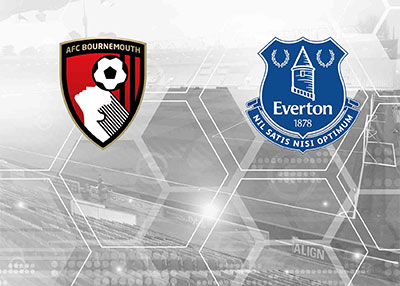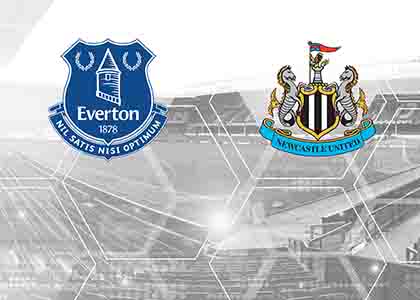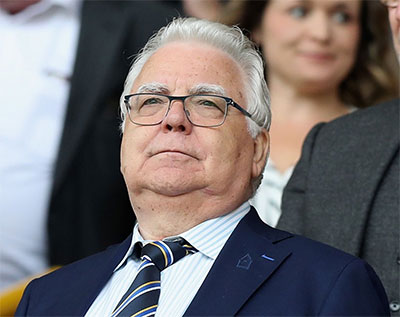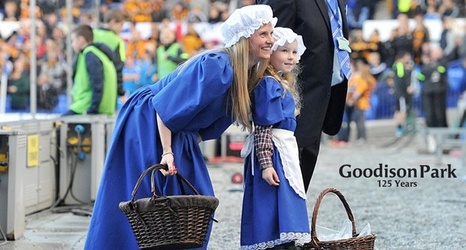Recent filings at Companies House signal two more tranches of additional investment in Everton Football Club, following the resolutions that were approved in August, allowing over 1 million new shares to be issued as required to secure additional equity in the club.
A return filed on 10 September 2025 shows a second Allotment of Shares was made on 28 August 2025, indicating that 57,143 new shares have been issued – presumably to Roundhouse Capital, which is The Friedkin Group's holding company for Everton Football Club. The amount paid for each share is £175, representing an additional investment or cash injection of £10M.
And this was followed by another return filed on 3 October 2025 showing a third Allotment of Shares was made on 28 September 2025, indicating that 257,142 new shares have been issued – presumably also to Roundhouse Capital. The amount paid for each share is £175, representing a further investment or cash injection of £45M.
This brings the total amount of new investment in the club since August to £101M. This amount is likely required to fund ongoing operations, including the substantial outgoings incurred during the transfer window, which has seen a net spend of £120M. The injection of cash also helps to ensure that Everton stay on the right side of the PSR threshold in terms of anticipated losses during the current financial year, 2025-26.
These additional allotments brings the total number of Everton shares outstanding to 2,198,935, and would nominally value the club at £385M, with the minority shareholders continuing to hold 7,969 shares in a dwindling proportion that represents just 0.36% of the overall stake in the club — down from 0.49% after TFG recapitalised the club following their takeover in December 2024.
Reader Comments (38)
Note: the following content is not moderated or vetted by the site owners at the time of submission. Comments are the responsibility of the poster. Disclaimer ()
2 Posted 07/10/2025 at 22:56:24
As a limited edition of 7,969 curio, I might be in for one myself.
I hereby bid for 1 @£180 - any takers?
3 Posted 07/10/2025 at 22:59:34
I doubt many folks have them as an investment -- maybe only TFG?
4 Posted 08/10/2025 at 00:55:29
This is supposed to be the year when that massively expensive asset we moved into this year starts paying back by delivering big revenue streams that allow us to be serious in the transfer market, maybe in the form of a couple of full-backs and a decent striker.
5 Posted 08/10/2025 at 01:20:27
It is predominantly a way of improving debt to equity ratios and therefore our credit rating.
It defeats the likelihood of the club going into liquidation and presents a much healthier picture.
It can and probably will be used to cover acquisitions (players and property) and property development.
I am sure Paul Quinn will provide a much more elaborate exposition in due course.
6 Posted 08/10/2025 at 02:22:47
7 Posted 08/10/2025 at 10:31:56
8 Posted 08/10/2025 at 10:47:52
I'm sure they were and not that long ago.
How much were the shares valued when Kenwright sold his to Mr Moshiri? And also recently when his partner sold the remaining shares that Kenwright held?
9 Posted 08/10/2025 at 13:52:05
Bookings that should be invalidated, Super League non-fines, Carabao Cup fixtures and other signs of superior management.
How do 14 clubs approve by vote for the implementation of such regulations or are Man City still rewriting them until the next TV contract is negotiated?
10 Posted 08/10/2025 at 15:00:35
Unilever Shares (my former employer) are 9 1/3p nominal value (28p for 3) and yet they currently trade at over £43.
If Unilever issued 1000 shares then they would receive £43,000 -- increase their share capital by £28 (1000 x £0.28) and put £42,972 into the share premium account.
11 Posted 08/10/2025 at 15:42:27
Based on the amount they said Moshiri initially paid for his 49.9% stake in the club -- £87M -- it worked out at an astounding £5,000 per share. I calculate Moshiri gave Kenwright at least £35M in total.
The remaining 1,750 Kenwright shares... I don't think they were publicly sold, and remain a part of the rump stock held by the likes of me and Steve Allinson among thousands of others.
There is a relatively new (August 2025) Confirmation Statement on file at Companies House, listing all shareholders. Right after my name, is listed a certain Mr William Kenwright, still with 1,750 shares...
Funny they usually qualify it as "Exequtors for... Deceased" — but glaringly not in his case.
Don't tell Tony but perhaps he's not dead at all!!!
12 Posted 08/10/2025 at 15:54:23
The investor pays for the newly issued shares. The money received by the company from the new share issue does not boost the profit and loss account (P&L), but is instead "salted away" into specific equity accounts on the company's balance sheet. This new capital is treated as a permanent source of funding, not as operational income or profit.
1. Who Pays for the Shares?
The investor (the new shareholder) is responsible for paying for the newly issued shares.
Proceeds go to the company: When a company issues (allots) new shares, the funds paid by the investor go directly to the company (this is called a subscription). This increases the company's assets (cash) and its equity.
Payment types: Payment is typically made via a cash deposit into the company's bank account, but in some cases, it can be paid through non-cash assets like equipment, services, or shares in another company.
Contrast with buying existing shares: It's important to distinguish this from an investor buying existing shares from another shareholder. In that scenario, the money goes to the selling shareholder, and the company receives nothing.
2. Accounting Treatment of the Proceeds
The funds received from issuing new shares are recorded in the equity section of the Balance Sheet and do not affect the Profit and Loss Account (P&L).
The total payment is split between two main balance sheet accounts: Share Capital and the Share Premium Account.
Share Capital
This is the portion of the funds equal to the nominal value (or 'par value') of the shares issued.
The nominal value is a minimum, usually very low amount (e.g., £0.01 or £1 per share) set out in the company's articles.
Share Premium Account
This is the difference between the issue price (what the investor paid) and the nominal value per share.
For example, if a company issues a share with a nominal value of £1 for an issue price of £10, £1 goes to the Share Capital account, and the remaining £9 goes into the Share Premium Account.
3. Why the Money is "Locked Up" (Non-Distributable Reserve)
The money placed in the Share Premium Account is indeed "salted away." Under the UK's Companies Act 2006, it is treated as a non-distributable reserve and is legally restricted in its use.
13 Posted 08/10/2025 at 15:58:28
That is not the same as what I called the 'nominal' value of the club, which is based on a share price of £175.
14 Posted 08/10/2025 at 16:36:30
Do the club anticipate more than they are letting on?
15 Posted 08/10/2025 at 17:11:51
16 Posted 08/10/2025 at 23:44:03
My friend told me someone keeps stealing soil from his allotment. I thought he'd lost the plot.
Now someone keeps adding more and more... The plot thickens.😁
17 Posted 09/10/2025 at 07:59:37
But if you have no intention of paying a dividend currently, it isn't really today's problem.
Salted away is an odd choice of word, as it makes out something is sinister when it isn't. There is nothing in #12 that is any different than any other company.
I understand that good Everton's have been diluted away, and I have sympathy with that (although I put it at the door of the incompetent board and Moshiri rather than the new owners).
The capital raise supports the business expenditure from transfers, and is a requirement under PSR that equity is required rather than external debt.
I take the above as a positive. Proper funding, from proper owners, with no sky-high interest in the discussion. None of this wonga loan crap where we borrowed against season tickets and TV money, took money from dodgy funds, or sold and leased back our training ground at huge expense.
What is the point of PSR? Well, if they're making clubs support losses with owners' equity, rather than external debt, you're probably stopping clubs from going bust if the funding gets called in. I think the Premier League have got that right, if that is the rule.
18 Posted 09/10/2025 at 09:50:14
I think the prime objective of PSR was indeed to stop clubs from going bust... with the (perhaps not so) unintended consequence of keeping the upcoming or recovering clubs (us!) from challenging the Big Boys.
Poorly structured debt under the old regime seemed to be a strong element that got us into the PSR mire. These equity injections seem to constitute a huge indirect benefit, even if they don't technically go onto the bottom line in terms of Profit & Loss.
19 Posted 09/10/2025 at 11:06:35
"Ordinary" people cannot buy any of these corporate £175 shares.
Holders of the 35,000 "vintage" shares would still today be looking for a price in the region of £3,000, with many unwilling to sell at any price because they are what might be called "emotional" investors.
And at that price, the "vintage" shares are worth in total £105M.
The corporate "pile them high" shares might be helping the club with PSR but I and many others are pleased to hold a "vintage" Everton share.
Also, a learned friend says: "The crude calculation of 2,198,935 x £175 as a valuation of the club at £385M whilst not wrong is at least misleading as Farhad Moshiri paid £450M back in January for just over a quarter of a million of those shares."
He adds: "A similar type of assumption would value the club. at £6.6B (2,198,935 x £3,000). The truth is somewhere in between."
20 Posted 09/10/2025 at 11:49:11
Given we have increased capacity by ~33% and significantly boosted the corporate hospitality element, it would be strange indeed if we did not enjoy a very significant revenue increase from Day 1. I assume we do sell out the stadium?
Added to that, we have what I assume is a major increase in stadium sponsorship with the naming rights.
I grant you there may be other revenue types that will take longer to establish. Conference and event hire for example. But I'd hope even these have had enough advance work put into them to start creating revenue very soon. After all, we have known we had this asset coming on stream for many years.
I seem to recall Deloitte suggesting we would enjoy incremental revenue of c £55M pa from the new stadium. I thought that was somewhat optimistic but even that sum did not represent the world's greatest yield, given the debt accrued and the 5% over risk-free asset that should be the measure. I hope we can get near to that (in real terms) and I can't see a reason why the majority of it would not happen from Year 1.
21 Posted 11/10/2025 at 00:37:37
Events represent a massive chunk of the projected stadium revenues. And that will require time to ramp up.
What I read somewhere was an estimate of £10M in increased seat revenues for the first year, which is very nice but well short of the eventual doubling of the £19M/year matchday revenue from Goodison.
We won't know until the revenues are posted a year from now, but I'm guessing that the club will see a gradual ramping-up process rather than a big burst of immediate cash flow from the stadium.
22 Posted 11/10/2025 at 06:57:55
Also the extrapolation of the club value at that price is disingenous as it doesn't take into consideration the stadium value, although some postulate that could be owned by a separate company (?).
Legacy shares held by small shareholders will be worthless though since instiutional investors are not going to try to round up all those individual holdings at £3k+ per share.
I expect they may retain some value being traded among Evertonians like ourselves on a secondary market such as happened last year at that Auction. Then it's just sentimental value rather than a financial investment.
23 Posted 11/10/2025 at 07:12:33
So I just hope our new (?) marketing team have been pro-active in getting word out that there's a new game in town and we can look forward to some Pink Floyd, Black Sabbath, Led Zeppelin, The Clash, etc. "Last money grab 'cos we owe HRMC Tour" down the line.
24 Posted 11/10/2025 at 10:40:06
Firstly, the 35,000 'original' Everton Shares date back to 1996, and were the total issued only up until March 2021. New tranches totalling 100,000 shares were issued to Farhad Moshiri then and in January 2022, for a total equity injection of £300M, bringing the total number of shares issued to 135,000.
Note that this was the case well before the TFG takeover in December 2024. So 135,000 shares existed when the last auction occurred — not just the 35,000 'vintage' shares you mentioned.
It's also worthy of note that the 100,000 additional shares were priced at £3,000 each in 2021-22, and that the share price established in the last auction (August 2024) amongst non-corporate "ordinary" fans was £3,500, slightly down on October 2023, when 42 shares were traded at £3,700 per share.
An argument could be made that the share price for us ordinary fans was at least in a similar ballpark to the corporate money manipulations in hand. Also, there are only around 6,000 'vintage' shares held by 'ordinary' fans — not 35,000.
Moving on to the TFG takeover, your learned friend says "Farhad Moshiri paid £450M back in January for just over a quarter of a million of those shares." By my calculation, 150,250 new shares were issued to Moshiri, converting his existing £450M shareholder loans into equity — at a price of £3,000 each.
The nominal value of the club transferred to TFG (as Roundhouse Capital) at that point was not £6.6B but a more modest £860M.
The crucial writedown in share price from £3,000 to £175 occurred in the second part of the takeover deal where 1,336,537 new shares were issued by TFG to "recapitaise" the club.
What irks me is that the same recapitalisation could surely have occurred by retaining the £3,000 share price but issuing only 77,813 instead. This would have preserved the share price, but would have valued the club at £1.09B.
Instead, TFG deliberately chose to down-value by around 75%, which I take as a reflection on the gross incompetence of club management under Moshiri, Kenwright, Barrett-Baxendale et al, and the haircut Moshiri had to take in the process of relinquishing ownership.
25 Posted 11/10/2025 at 12:17:32
I think we are working off different numbers, not surprising since I don't think any have been officially published.
The £55M Deloitte figure was widely publicised, including on here, but having done a thorough search, I can't actually find a reliable source for it.
What I do know is that matchday income for every Premier League club is vastly bigger than any money they generate from events. Take the Emirates, one of the highest profile venues and in London. They didn't actually hold any events in 2024-25, so revenue was zero (but they did hold 4 the previous year).
I would be very very surprised if they made £2M per event, if that, on those. Their matchday income is well north of £100m. I hope we don't place too much onus on event income, because I think we will be disappointed.
Maybe you can find evidence of another stadium making a sizeable portion of its matchday income from events?
As for what we can expect in the coming year, we can increase our previous income by a third just by increased ground capacity. So that adds about £7M.
Then I think we can add a decent uplift from revenue per attendee driven by the marked increase in hospitality packages (4,000?), significantly bigger food and beverage outlets on site, plus an overall increase in ticket prices. How much one could apply is moot, but around 20% doesn't seem unreasonable?
That gives another £5k or so, thus we are at about £32M. Then you have the naming rights, quoted at £10M but let's be conservative and say £8M. This takes us up to £40M give or take. I would think that is probably fair and id not too out of line of the Liverpool Echo's report (for what that is worth) if you include the naming rights in it.
Everton financial game changer finally here as Real Madrid decision pays off
Personally I think that is most of the stadium revenue increment accounted for. There'll be a bit on stadium tours, there's talk of bars and restaurants being open on non-matchdays but it's not the easiest place to get to. Conferences might yield more than major events in my view but that is a very competitive field. In total, at most another £5M a year?
I'm aware that £25M addition revenue is thin pickings for a facility that cost us £800M and on paper, would not even cover the interest costs required to fund its construction. Of course inflation will eventually help redress that but even so.
Maybe you can persuade me I'm underestimating it, and we can easily make £10-15M outside matchday, but if not, I think we'll be banking 75% plus of the uplift from year one.
26 Posted 11/10/2025 at 14:46:28
What then is the rationale for revaluing a £1.08 Billion club to £365 Million given that we have a £800 Million asset in the stadium?
27 Posted 11/10/2025 at 14:55:44
I don't know but I suspect we are not free of debt, and much of the stadium value will be accounted for by that (assuming it isn't true about it being in a seperate vehicle, which would have the same effect).
So it is maybe true that our net value is around £400M -- which I guess is player value, goodwill etc- and our free of debt value could be £1B plus.
28 Posted 11/10/2025 at 21:46:21
I was beginning to think it was just me.
I understand that people in the know say the simple maths of Shares x Price = Club Value is just too simplistic.
And yet I have tracked this for years and it seems to be broadly indicative... that was until the new stadium, and Farhad's apparent largesse and ultimate demise distorted the picture.
29 Posted 12/10/2025 at 03:19:00
30 Posted 12/10/2025 at 19:27:56
I re-read your excellent post but cannot find where you incorporated the interest on the £350M loan that Friedkin saddled the club with. Interest at (say) 5% pa would reduce your net figure by an extra £17M pa.
Is there an accountant in the house?
31 Posted 12/10/2025 at 20:26:59
If you're thinking of buying a share, you need to be thinking in terms of circa £3,000, which is the going rate.
33 Posted 12/10/2025 at 21:05:47
Naming rights is thought to be £6-8M. The club has a rugby league game, and is sure to cash in on gigs next summer. I'd love to see a South American friendly hubbed there too.
I'd expect Everton to see an increase in televised games, as well league placing merit payments. It could be £40-50M if it's a good season. And it would be good to have European football for next season, with sponsorship being pushed higher.
34 Posted 17/10/2025 at 10:06:42
35 Posted 17/10/2025 at 11:11:37
https://www.liverpoolecho.co.uk/sport/football/football-news/true-financial-boost-taylor-swift-30552063
Using those numbers if we could get 6 big concert nights a year we could look to generate in the region of £15m
36 Posted 17/10/2025 at 11:29:22
37 Posted 17/10/2025 at 11:34:55
Christ we dodged a big one there!
38 Posted 17/10/2025 at 12:09:47
39 Posted 17/10/2025 at 12:12:46
Add Your Comments
In order to post a comment, you need to be logged in as a registered user of the site.
Or Sign up as a ToffeeWeb Member — it's free, takes just a few minutes and will allow you to post your comments on articles and Talking Points submissions across the site.
How to get rid of these ads and support TW










1 Posted 07/10/2025 at 22:52:53
The inflow of money has to be seen as income, which obviously is set against any losses, and thus directly counters any PSR issues or concerns.
Which makes me wonder about Newcastle's well-publicised PSR bind. Why didn't the PIF or whoever just throw money at the Toon in exchange for newly printed shares?
Or perhaps it's just not that simple...???